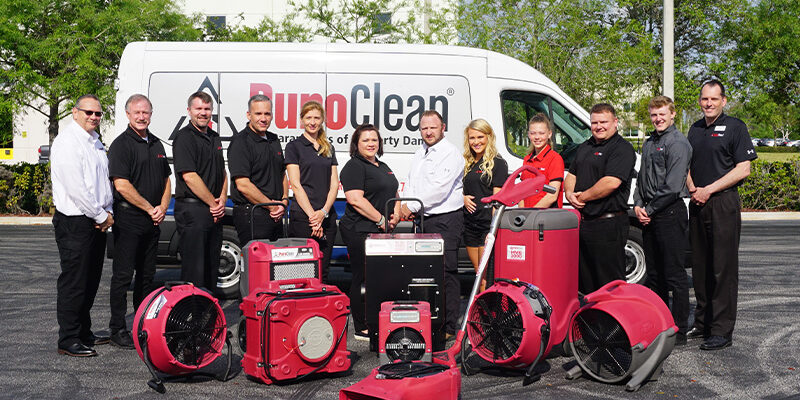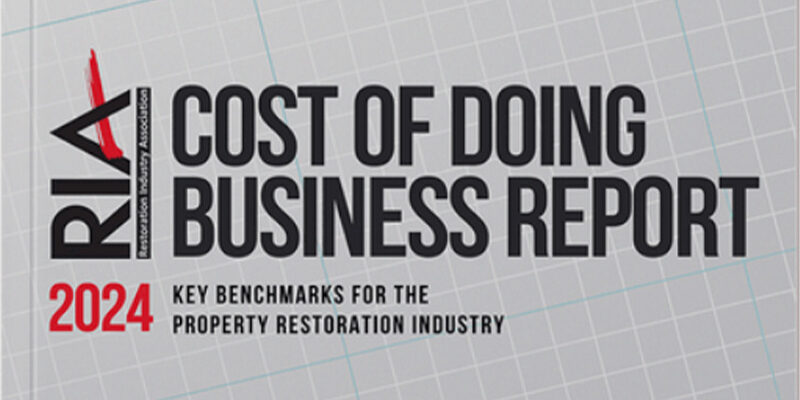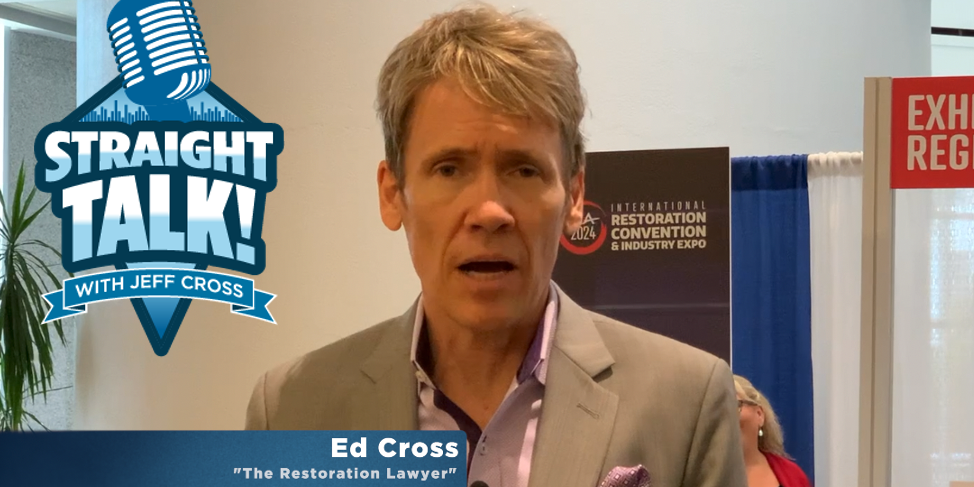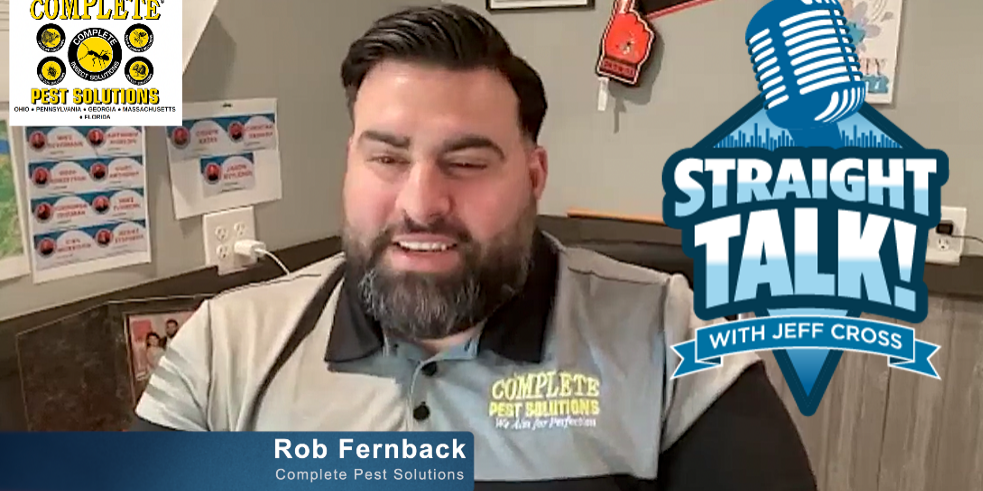2021 Industry Leaders Review: Bluegreen Carpet and Tile Cleaning
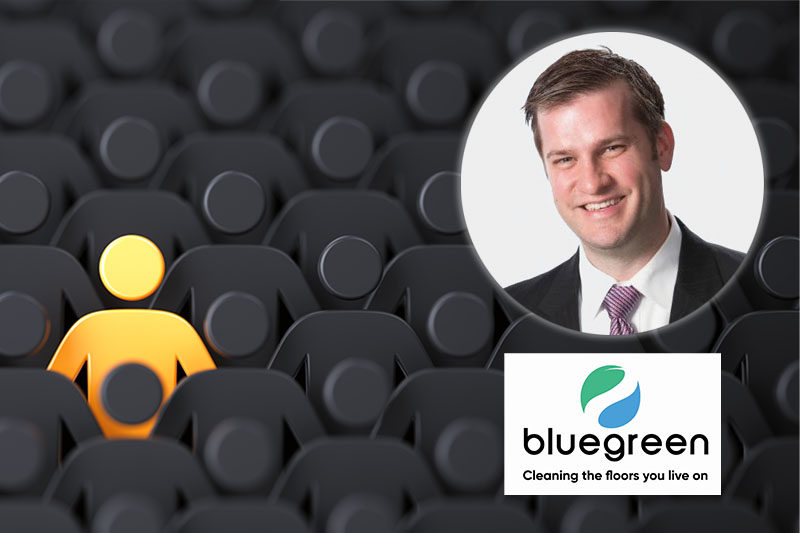
Sam Hughes, owner of Bluegreen Carpet and Tile Cleaning in Wisconsin, started his career as an engineer but was bitten by the entrepreneur bug when he partnered with his brother to sell satellite TV. After growing that company to over 100 employees, Hughes started looking for his next challenge. “I have always been fascinated by service businesses, and with my degree in engineering, I am passionate about figuring things out,” Hughes says. He saw that the local market was in need of a professional floor-care company focused on great customer service, so in late 2011 he started Bluegreen.
Hughes admits that his biggest challenge early on was a lack of experience in the cleaning industry. “I knew nothing about this industry when I started nine years ago and never owned a service business.” In the satellite TV business, his primary role was hiring and managing inside sales professionals, and Hughes assumed it would be easy to transfer those skills, hire service technicians, and build up a company. “I was wrong. I realized it was more important to build a strong culture, have a great vision, and constantly share with our team the vision of our company and the opportunities that exist within,” he explains.
Fortunately, Hughes’ passion for figuring things out and his commitment to the service industry has served him well. He overcame those early challenges and today Bluegreen has 11 full-time employees and operates four trucks. The company offers commercial and residential carpet, tile, upholstery, wood, and vinyl cleaning services, as well as honing and polishing natural stone, marble, and terrazzo floors. With five locations, Bluegreen serves the Waukesha, Milwaukee, and Madison, Wis. areas.
Growing pains and lessons learned
As an owner, Hughes’ focus has always been on growth and taking the next right step for the company. Bluegreen Carpet and Tile Cleaning officially launched at the beginning of 2012 with gross revenue that year of $264,000 and “significant investment losses.” Every year since, the company has seen annual growth ranging from 1.6% to 63%. “The first couple of years had the highest growth percentages with 2018 having the lowest,” he explains. “What I realized as the sole owner of Bluegreen is that building a business is slow because cash flow must be managed, as well as team member morale, marketing, and staying focused on the most important tasks.”
When it comes to marketing, Hughes says relationship marketing has always been his most productive strategy for recruiting and retaining clients. “What we have learned is that when we deliver on great communication, professional and reliable service, and keep it affordable, our clients call us back for repeat service and refer us to their friends.” Hughes also recommends investing in a great website and working hard to gather strong Google reviews.
“Lastly, I learned from a business friend that if you look and act like you are an owner/operator, you will get owner/operator prices. If you look and act like a larger corporation, you will get larger corporation prices for your services.” To that end, Hughes ensures all communications and marketing materials are top-notch.
Growing a cleaning business from the ground up has delivered its fair share of challenges and tough lessons over the years. One of those lessons was to focus on the services the company does best rather than chasing every possible “new opportunity” that might arise. “I spent a few years doing wood floor refinishing, epoxy floors, and a few other services that took up a ton of time and produced little revenue,” Hughes explains. “All that lost energy could have been spent just focusing on the basics, and we would easily be 15-20% larger today.” Hughes also wishes he had been tighter with cash flow in the early days and more wary of bad business deals. “I ended up watching a business deal go south, and instead of withholding funds and making sure the other party was doing their part, I kept paying out monthly payments until the last payment was made, and they completely stiffed me, nearly causing economic failure.”
New challenges, new plans
The benefit of those early lessons is they prepared Hughes to meet the challenges of the pandemic head-on, allowing Bluegreen Carpet and Tile Cleaning to land on its feet despite a couple of tough months. “March, April, and May were painful, with a 35% decrease in revenues and a few layoffs in there as well,” he admits. But the same week Bluegreen faced nearly 100% cancellations, the team began working on a new sanitizing and disinfecting division. “We purchased cases of disinfectant and specialized equipment and launched two additional website pages so we could begin marketing right away. Within a couple of weeks, we secured several accounts with multiple weekly sanitizing visits and some COVID cleanups.” The sanitizing work alleviated cash-flow problems during the early days of the pandemic and helped bring Bluegreen’s revenues back to normal by June.
As the company looks ahead to the new year and beyond, Hughes sees further growth in their future and aims to achieve it through strategic planning and focused marketing. The Bluegreen Carpet and Tile Cleaning team meets annually following the Entrepreneur Operating System model, and they developed their 2021 plan in early December 2020. “Our team will be more laser focused on our marketing strategies in the commercial space by increasing our client communication, revamping our existing website, and hiring an additional salesperson,” Hughes explains. He also plans to improve the company’s Google local listings and revamp their CRM system to better track commercial sales and leads. Additionally, Bluegreen will be expanding its sanitizing and disinfecting division in response to continuing demand from the pandemic.
Vision and commitment
Hughes believes the key to success is to recognize that your own capacity is limited and—rather than relying only on yourself—commit to a larger vision and stay focused on that vision. Accordingly, for those new to the industry, Hughes recommends learning everything you can from many different sources. He says that coming from a career in engineering to the service industry was humbling. “I thought my learned skills would easily transfer into this industry. I was wrong, and I highly recommend for anyone entering this industry to seek counsel and advice from other successful business owners.”
In fact, when it comes to seeking advice, Hughes relies on a favorite proverb: “Plans fail for lack of counsel, but with many advisers they succeed.” Among Hughes’ many advisers is a leadership coach and a business coach, as well as a monthly CEO roundtable group and a bi-monthly Christian business owners’ group, all of which provide different perspectives, advice, and insight that help him build his business. “Don’t limit your counsel to a single individual,” Hughes says because they might give you the wrong advice for a given situation. If you have multiple people to talk to, it becomes easier to sort the good ideas from the bad.
Beyond good counsel, Hughes recommends investing in a robust CRM system that you use to its fullest extent, and he says it’s important to know your numbers as the owner. “If a business owner doesn’t know their operating numbers, they are just an operator. That is fine for some people, but I hit a growth ceiling when I didn’t know what was profitable and what wasn’t profitable,” he explains.
Hughes’ skills may not have transferred to the industry as easily as he imagined, but that hasn’t dampened his enthusiasm for the field—or his commitment to succeed. “I still love service businesses and I love helping people improve their business and workplace. Making an old dirty floor look new is an awesome feeling and selling the next project is even more awesome!” After the challenges Hughes faced and the steep learning curve of entering a new industry, he believes his success comes down to one key factor: “The MOST important characteristic I have that I believe keeps our company growing is the absolute tenacity to never quit. Those nights when I felt like selling the business to go get a job were the moments I had to decide that I wasn’t going to quit and the only way I would leave was to be dragged out of my office.”



